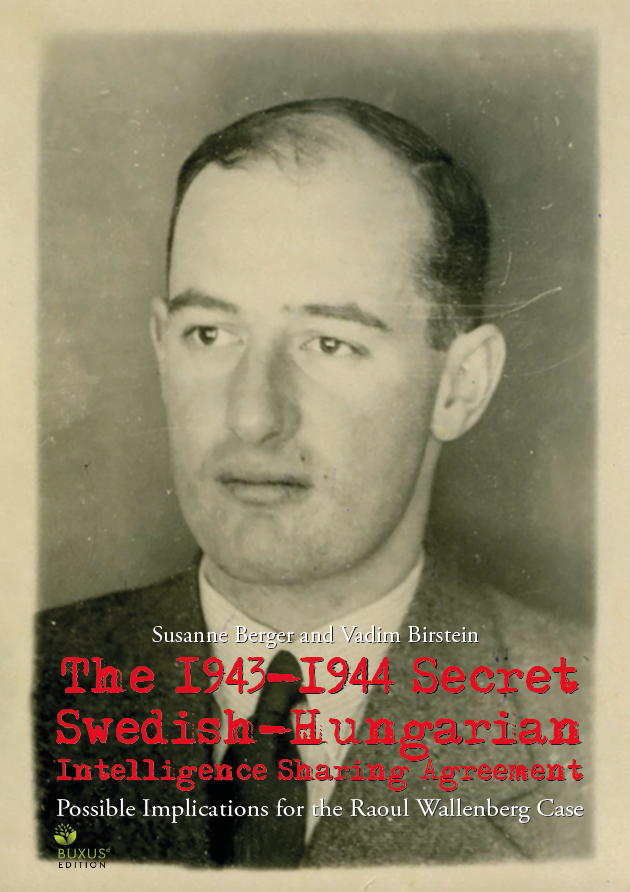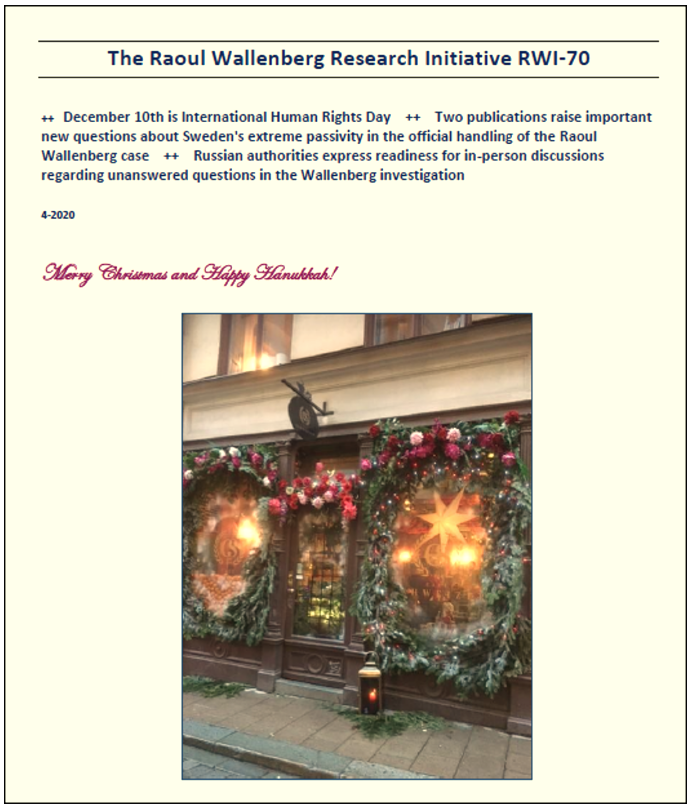13.12.2020
The current newsletter of the Raoul Wallenberg Initiative 70 announces two important new publications
Press Release
In two new studies, researchers call into question several long held assumptions in the Raoul Wallenberg investigation.These include details about Wallenberg’s selection for the humanitarian mission in Budapest; his contacts and activities in Hungary; and the factors that influenced the official Swedish handling of Wallenberg’s disappearance after 1945.
The combined findings suggest that the Swedish government’s extreme passivity in the Raoul Wallenberg case may have been the result of [several additional], previously not fully recognized or understood factors. In contrast to earlier claims, Sweden’s lack of decisive action does not seem to have been simply the result of administrative failures, chaotic post-war conditions, individual incompetence, Wallenberg’s status as an “outsider” or Sweden’s overwhelming fear of the Soviet Union. It in many ways appears to have been a conscious decision by Swedish decision makers, driven by a variety of motives.
Specifically, the new insights lead to a potential reevaluation of the actions of the much criticized Swedish Envoy to Moscow Staffan Söderblom, the late Ambassador Per Anger, Wallenberg’s colleague in Budapest in 1944 and others, including Sverker Åström, one of Sweden’s top diplomats in the post-war era who is suspected of having functioned as a Soviet asset throughout his long career.
For more information and the latest news about the project, please view the latest edition of the RWI-70 circular.








